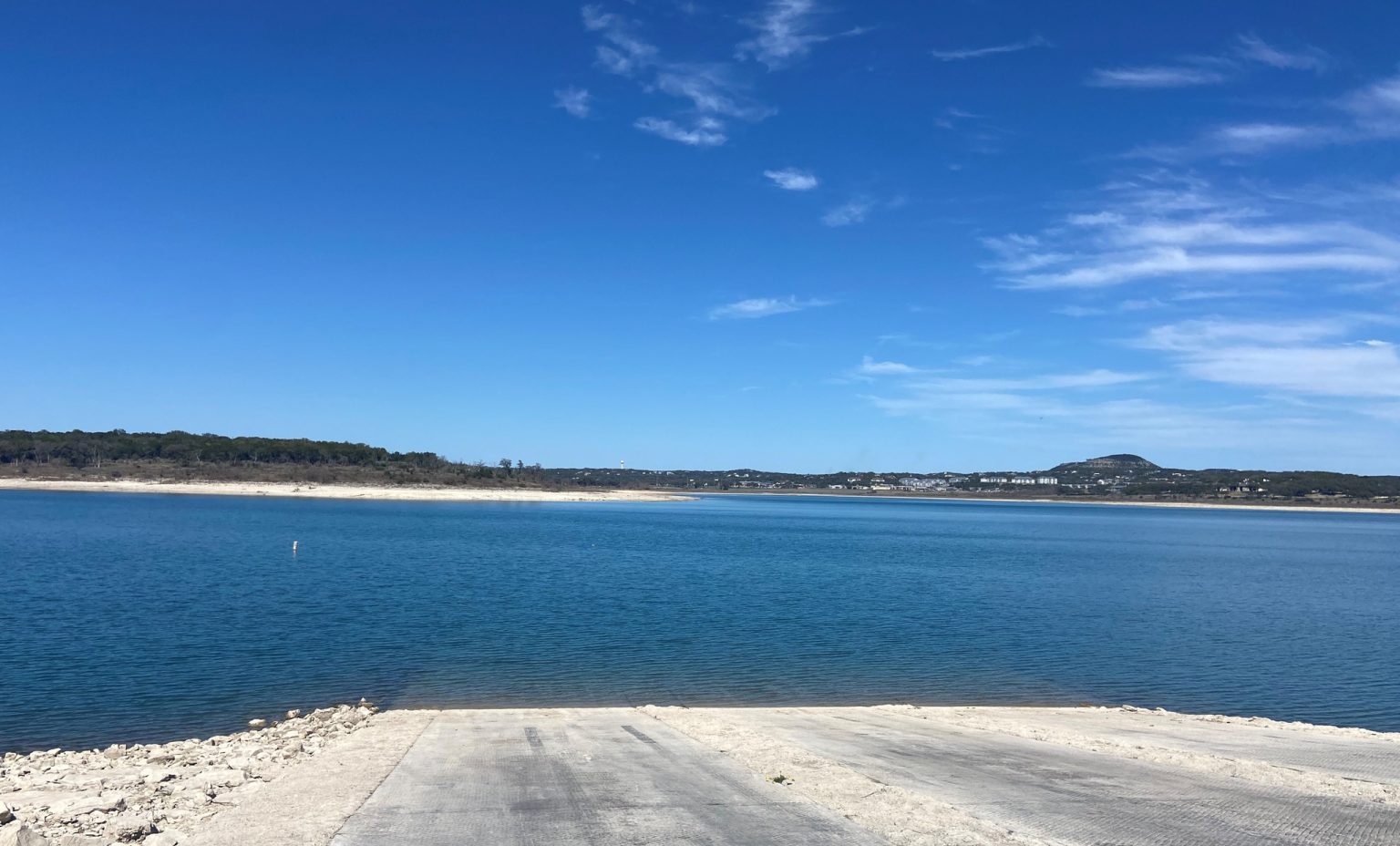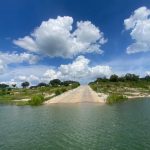Comal County commissioners today adopted new rules and regulations for the nine boat ramps it operates around Canyon Lake and approved new water-safety rules proposed by the Water Oriented Recreation District of Canyon Lake (WORD).
At the weekly Commissioners Court meeting, they signed off on a standard interlocal agreement that spells out the services WORD will provide at county ramps, including cleanup, law enforcement, and health and sanitation services.
“It also allows us to tie in Comal County ramps with the water safety ordinance that we originally passed for the water surrounding certain boat ramps to replace the 1995 Guadalupe Blanco River Authority (GBRA) order,” said WORD General Manager Mike Dussere.
WORD funds the services it provides by issuing permits to water-related businesses, allowing them to collect user fees from customers visiting the district.
The district operates boat ramps # 3, 4, and 18 in Comal and Canyon parks.
County Judge Sherman Krause said area law enforcement officials will be updated on all of the new rules and regulations outlined in court today.
The county’s legal department worked up until the last minute to ensure the enforceability of its own new regulations.
“The reason we’re making these changes is to provide for enforcement at our county boat ramps,” Krause said. “We have had problems with vehicles without trailers parking in trailered spaces, we have had issues with people obstructing the use of our boat ramp facilities, and we have had people parking basically anywhere they could find a spot to park…these rules will allow law enforcement to either cite or to tow vehicles that are in violation of the order.”
Commissioner Donna Eccleston, who represents Precinct 1, which includes parts of Canyon Lake, said she hopes the new rules will bring order to the county boat ramps, which until last year were a chaotic mess.
Thousands of people descended weekly on the ramps, which were built in the 1960s to accommodate small subdivisions. Rules were not always clear to boaters or even law enforcement officials.
“This significantly enhances the use and enjoyment and safety on these boat ramps, which has been an issue for quite some time,” she said. “I know we’ve discussed it for several years.”
Doug Leecock, who is running against Joyce Yannuzzi to replace Eccleston in the March 28 runoff election, said the Canyon Lake Boat Ramps Community Alliance (CLBRA) worked closely with the county to flesh out many of the regulations approved by the court today.
The community group he spearheads hopes they will “greatly assist” law enforcement.
“We have come so far over the past few years with Commissioners Court to address the many access, safety and parking issues that have been apparent at the county-operated boat ramps,” he said. “This year, working with county along with the U.S. Army Corps of Engineers (USACE), WORD, and others, we have made great strides for overall improvements for access to the water.
“It’s been a long time coming.”
WORD’s New Water Safety Ordinance
It is now unlawful for anyone to violate these new rules within individual boundaries designated as ‘Water Safety Zones.’ They include the areas surrounding boat ramps and will be marked with no wake buoys:
- No person may operate a watercraft at speeds greater than the minimum headway which causes a wake.
- No person may swim or enter the water except as may be needed for the facilitation of launching, recovery, inspection or repair of a watercraft.
- No person may fish in the area.
- No person may place or cause to be placed a dive flag or engage in SCUBA or snorkeling activities.
- ‘Watercraft’ includes any contrivance used or designated for navigation on the water, including boat, vessel, motorboat, personal watercraft, canoe, kayak, punt, rowboat, sailboat, stand-up paddle board, and other craft when paddled, poled, oared or wind-driven. Prohibited items include devices propelled only by the current of the water such as tubes, air mattresses, floating mats and rafts.
Any violation of this new ordinance is considered a Class C misdemeanor offense and is punishable by a fine of up to $500.
County’s New Rules for Boat Ramps and Boat Ramp Areas
These areas are defined as water-launching ramps maintained as part of the county’s unit road system. They include, but are not limited to, the launching ramp itself, any floating boat ramps adjacent to or near the launching ramp, and any parking area provided for the launching ramp.
‘Designated parking space’ refers to:
- ‘Trailered parking space’ for motor vehicles with an attached registered trailer used to transport a watercraft on a public roadway
- ‘Non-trailered parking space’ designated for motor vehicles without an attached registered trailer.
Motor vehicles are defined as self-propelled vehicles. Parking means to stop or stand an unoccupied or unoccupied vehicles, other than temporarily while loading or unloading merchandise or passengers.
‘Person’refers to an individual or corporation, association, limited liability company, or other entity or organization governed by the Business Organizations Code.
‘Obstructing’ means to render impassible, to interfere with the normal use for launching or recovering watercraft, or to render passage unreasonably inconvenient or hazardous.
Criminal Offenses are defined as:
- Obstructing – A person commits an offense if, without legal privilege or authority, intentionally, knowingly or recklessly obstructs a county boat ramp area regardless of the means of creating the obstruction and whether the obstruction arises from his acts alone or from their acts or acts of others. A person is presumed to have acted intentionally, knowingly, or recklessly when a person disobeys a reasonable request to move the obstruction by law enforcement or the fire department.
- Parking – A person commits an offense if they intentionally, knowingly or recklessly park a motor vehicle in a county boat ramp area not specifically designed for that type of vehicle. Anyone who intentionally, knowingly or recklessly parks a motor vehicle in a county boat ramp area in any area that is not a designated parking space or abandons an item of personal property in a designated parking space or spot of any other boat ramp area.
The registered owner of each vehicle will be liable for stopping, obstructing or parking the vehicle or abandoned personal property.
These offenses are punishable by a fine of up to $500. Cars will be towed.




